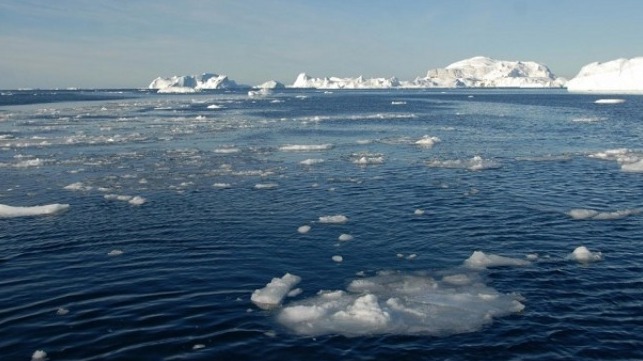Less Than One Degree Could Determine Ice-Free Arctic

A range of less than one degree Fahrenheit (or half a degree Celsius) of climate warming over the next century could make a significant difference to the probability of future ice-free summers in the Arctic, new University of Colorado Boulder research shows.
The findings show that limiting warming to 2.7 degrees Fahrenheit (1.5 degrees Celsius) would reduce the likelihood of an ice-free Arctic summer to 30 percent by the year 2100, whereas warming by 3.6 degrees Fahrenheit (two degrees Celsius) would make at least one ice-free summer certain.
The study, undertaken by Alexandra Jahn, used simulations from the Community Earth System Model (CESM) run at the National Center for Atmospheric Research (NCAR) and examined warming scenarios ranging from 1.5 degrees Celsius to four degrees Celsius (7.2 degrees Fahrenheit) by the end of the century. The lower bound of the study is an important benchmark worldwide; in 2015, the international Paris Climate Agreement set a global target of constraining warming to 1.5 degrees Celsius.
Arctic sea ice extent has declined overall in recent years with increasing global temperatures, but the effects of future warming remain uncertain. The new findings illustrate that different scenarios of carbon dioxide emission levels lead to drastically different results for Arctic summer sea ice.
“This dataset allows us to predict how soon we’re likely to see ice free conditions as well as how often,” said Jahn. “Under the 4-degree Celsius scenario, we would have a high probability of a three-month ice free period in the summer months by 2050. By the end of century, that could jump to five months a year without ice. And even for half that warming, ice-free conditions of up to two month a year are possible by the late 21st century.”
However, if warming stays at 1.5 degrees Celsius, the probability of ice-free summers would drop by 70 percent, delaying or potentially even avoiding such occurrence altogether. The significant difference in the results, Jahn said, might provide added incentive for countries to attempt to hit the 1.5-degree Celsius warming target in order to preserve current ecological conditions.
“The good news is that sea ice has quick response times and could theoretically recover if we brought down global temperatures at any point in the future,” said Jahn. “In the meantime, though, other ecosystems could see permanent negative impacts from the ice loss, and those can’t necessarily bounce back.”
